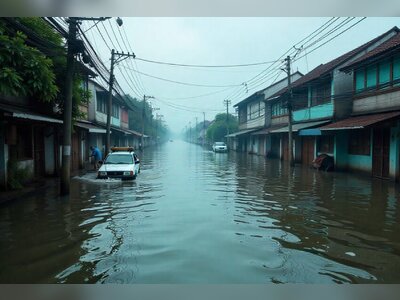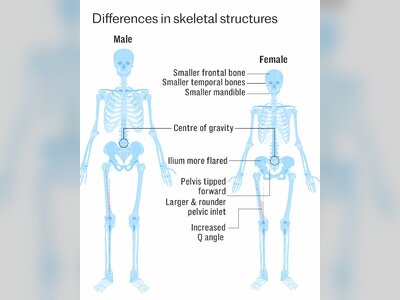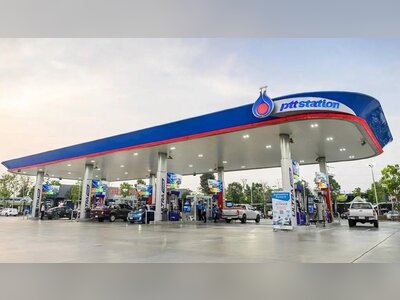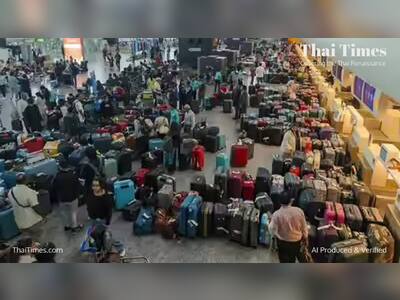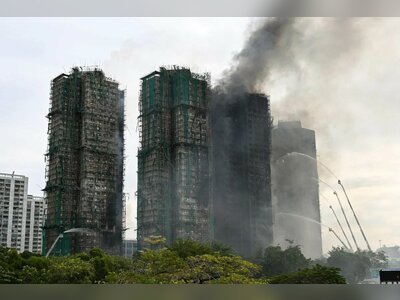
New 'Smart Pier' Opens to Enhance Transport Connectivity in Nonthaburi
Rama VII Pier, part of a larger initiative to modernise transport in the Bangkok metro area, features advanced technologies including AI security and solar power.
The Ministry of Transport in Thailand has inaugurated the Rama VII Pier located in the Bang Kruai district of Nonthaburi.
This event marks a significant step in a broader plan aimed at modernising transportation across the city, which integrates land, rail, and water transport systems.
Deputy Transport Minister Manaporn Charoensri made the announcement, highlighting the pier as one of 29 facilities undergoing upgrades within the Bangkok metropolitan area.
The Rama VII Pier is part of the Smart Pier initiative, a joint effort involving the Marine Department and the Electricity Generating Authority of Thailand.
Spanning 700 square metres, the pier includes a small docking area and incorporates solar panels for sustainable energy production.
Additionally, it is equipped with advanced technological features such as AI-based facial recognition systems for enhanced security and automatic service counters.
Passenger amenities include electric vehicle (EV) charging stations, accessible restrooms, and smart lighting systems.
It is projected that the Rama VII Pier will accommodate an average of 53,000 passengers daily by the year 2030. Kritpetch Chaichuay, the director-general of the Marine Department, reported that upgrades have been completed on 12 piers into smart facilities, with two additional piers, Pak Kret and Kiak Kai, set to be finalised shortly.
In a separate event, the Bangkok International Motor Show 2025 has concluded with a record total of 79,941 vehicle bookings, marking a notable 44.8% increase from the previous year.
The event showcased the growing trend towards electric vehicles (EVs), with Chinese manufacturer BYD leading the sales with 9,819 units, closely followed by Toyota with 9,615 units.
The show reported an attendance of 1.6 million visitors, further indicating a rising consumer interest in electric mobility solutions.
Over 65% of the total vehicle bookings comprised electrified models, predominantly sport utility vehicles (SUVs), while traditional internal combustion engine vehicles made up the remaining 35%.
Factors contributing to the increase in vehicle bookings included the introduction of new models, competitive promotional strategies from manufacturers, and supportive government policies aimed at enhancing consumer confidence in the automotive market.
Vice Chairman of the Bangkok International Motor Show, Jaturont Komolmis, remarked on the success of the event and the growing participation of automotive manufacturers, creating an engaging atmosphere for attendees.
This event marks a significant step in a broader plan aimed at modernising transportation across the city, which integrates land, rail, and water transport systems.
Deputy Transport Minister Manaporn Charoensri made the announcement, highlighting the pier as one of 29 facilities undergoing upgrades within the Bangkok metropolitan area.
The Rama VII Pier is part of the Smart Pier initiative, a joint effort involving the Marine Department and the Electricity Generating Authority of Thailand.
Spanning 700 square metres, the pier includes a small docking area and incorporates solar panels for sustainable energy production.
Additionally, it is equipped with advanced technological features such as AI-based facial recognition systems for enhanced security and automatic service counters.
Passenger amenities include electric vehicle (EV) charging stations, accessible restrooms, and smart lighting systems.
It is projected that the Rama VII Pier will accommodate an average of 53,000 passengers daily by the year 2030. Kritpetch Chaichuay, the director-general of the Marine Department, reported that upgrades have been completed on 12 piers into smart facilities, with two additional piers, Pak Kret and Kiak Kai, set to be finalised shortly.
In a separate event, the Bangkok International Motor Show 2025 has concluded with a record total of 79,941 vehicle bookings, marking a notable 44.8% increase from the previous year.
The event showcased the growing trend towards electric vehicles (EVs), with Chinese manufacturer BYD leading the sales with 9,819 units, closely followed by Toyota with 9,615 units.
The show reported an attendance of 1.6 million visitors, further indicating a rising consumer interest in electric mobility solutions.
Over 65% of the total vehicle bookings comprised electrified models, predominantly sport utility vehicles (SUVs), while traditional internal combustion engine vehicles made up the remaining 35%.
Factors contributing to the increase in vehicle bookings included the introduction of new models, competitive promotional strategies from manufacturers, and supportive government policies aimed at enhancing consumer confidence in the automotive market.
Vice Chairman of the Bangkok International Motor Show, Jaturont Komolmis, remarked on the success of the event and the growing participation of automotive manufacturers, creating an engaging atmosphere for attendees.

